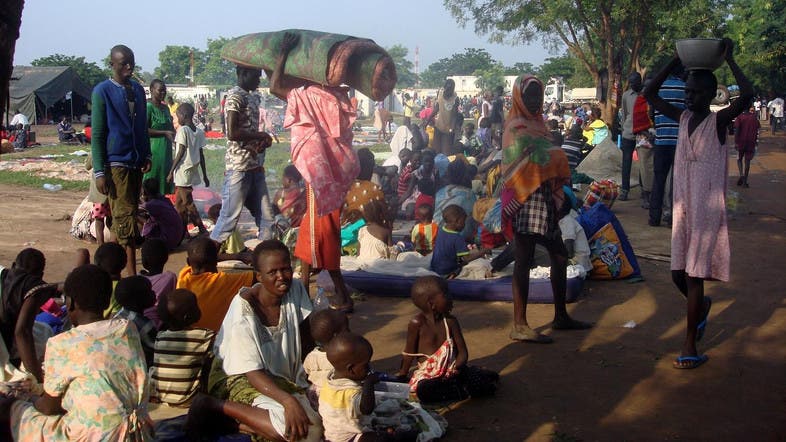David Cameron Confirms He Will Resign On Wednesday, Theresa May Next Prime Minister
Zerohedge:With Theresa May the last (wo)man standing, it should not be totally surprising that David Cameron has just confirmed he will officially resign as British prime minister on Wednesday after Prime Minister’s Questions. Early strength in sterling is holding.
David Cameron says he will resign by Wednesday, Theresa May to be next British Prime Minister.
She will be tasked with either triggering the Article 50 process for the UK’s departure from the EU, or trying to undo the entire process.
**** Larry is staying however at 10 Downing Street. Who is Larry?

 Images from Getty/Guardian
Images from Getty/Guardian
A Cabinet Office spokeswoman said: “It’s a civil servant’s cat and does not belong to the Camerons – he will be staying.”
Larry, who was rehomed from Battersea Dogs and Cats Home in 2011, was said to have a “strong predatory drive” that suggested he would be well suited to the task of rat catching. Guardian
At least Theresa May is on the right side of a major issues, radical and militant Islam.
Published on Mar 23, 2015An extensive wish list of counter-extremism measures has been reeled off by the Home Secretary in her last major speech before the start of the general election campaign. From launching an investigation into the use of Sharia law to promoting “British values” through social media, and from an inspection of police responses to honour crimes to stricter English language requirements, Theresa May set out how a Conservative majority government would deal with extremism. The Home Secretary used the speech to warn radical Islamists that the “game is up” and that they are no longer tolerated in Britain, but also called on British Muslims to help tackle extremism.
Regarding the recent vote on Brexit:
Factbox: Theresa May’s plans for a Brexit ministry and who might lead it
MAY’S BREXIT MINISTRY
Reuters: “Nobody should fool themselves this process will be brief or straightforward. Regardless of the time it takes to negotiate an initial deal, it is going to take a period lasting several years to disentangle our laws, rules and processes from the Brussels machinery,” May said on June 30 when she launched her candidacy to be prime minister.
“That means it is going to require significant expertise and a consistent approach. I will therefore create a new government department responsible for conducting Britain’s negotiation with the EU and for supporting the rest of Whitehall in its European work.
“That department will be led by a senior Secretary of State — and I will make sure that the position is taken by a member of parliament who campaigned for Britain to leave the EU.”
CANDIDATES TO BE MAY’S BREXIT NEGOTIATOR
DAVID DAVIS
A senior Conservative lawmaker who was beaten by David Cameron in the party’s 2005 leadership election contest, Davis has been in parliament since 1987 and is a former junior Foreign Office minister.
Davis was born in York and grew up in south London. He first worked as an insurance clerk before spending 17 years at global food ingredients provider Tate & Lyle.
He has served as Conservative Party chairman and was also the party’s home affairs spokesman in opposition.
In an article for Conservative grassroots website Conservative Home on Monday, Davis said Britain should take its time before triggering Article 50. The government should first work out its negotiating strategy and begin the formal process of leaving the EU “before or by the beginning of next year”.
“We need to take a brisk but measured approach to Brexit. This would involve concluding consultations and laying out the detailed plans in the next few months,” he said.
LIAM FOX
Fox ran for the Conservative leadership himself before backing May when he was eliminated in the process of winnowing the candidates down to two.
During the leadership contest, Fox said he would trigger Article 50 by the end of this year, with the intention of a full British exit from the EU by Jan. 1, 2019.
Long a figure on the right wing of the Conservative Party, Fox was born and raised in Scotland and attended the local state school before studying medicine at the University of Glasgow.
He worked as a doctor and civilian army medical officer before becoming a Conservative lawmaker in 1992.
Fox was defense secretary from 2010-2011, when he resigned over his relationship with a businessman who acted as his adviser. A government investigation found he had breached the ministerial code by allowing an “inappropriate blurring of lines between official and personal relationships”.
He has also held the posts of junior foreign office minister and Conservative Party chairman.
MICHAEL GOVE
Gove was a leading Brexit campaigner who ran for the party’s leadership but was eliminated in the second round of voting.
He had been expected to support former London mayor Boris Johnson for the leadership but made a surprise announcement hours before Johnson was due to launch his bid that he did not believe Johnson was up to the job and would run himself instead.
Gove was brought up in Scotland and studied at Oxford University before becoming a journalist. He worked at the BBC and the Times newspaper, where he was assistant editor.
He was also chairman of the center-right thinktank Policy Exchange before being elected to parliament in 2005.
Under outgoing Prime Minister David Cameron he has served as Education Secretary and Justice Secretary.
CHRIS GRAYLING
Grayling, currently the leader of Britain’s lower house of parliament, was May’s campaign manager during the leadership contest. A former Justice Secretary and minister in the Work and Pensions department, Grayling has been in parliament since 2001.
Before becoming a lawmaker he worked in television production and marketing.
Last month he told Reuters he expected Britain to have informal talks with the EU about its future relationship before triggering Article 50, which he said should only be done when Britain is ready.
CANDIDATES TO BE MAY’S FINANCE MINISTER
PHILIP HAMMOND
Currently Foreign Secretary, Hammond campaigned for Britain to remain in the EU. A lawmaker since 1997, he is also a former defense minister and minister for transport.
While the Conservatives were in opposition, he was a junior spokesman for the party on finance.
Before entering parliament he had a career in business including working for companies in manufacturing, consultancy, property, construction, and oil and gas.
Last week Hammond said the government was not yet in a position to begin substantive negotiations and therefore should not begin the process by triggering Article 50.
He also said the economic and fiscal impact of Brexit in the short term would reduce government revenues, making it harder to significantly boost funding for trade negotiation resources.
SAJID JAVID
A lawmaker since 2010, Javid has been Business Secretary since last May’s election. He also previously served in two junior minister roles at the Treasury.
The son of a bus driver, Javid had been promised the role of finance minister by leadership candidate Stephen Crabb, who pulled out after the first round of voting. Both have working-class roots, leading them to be dubbed the “blue collar ticket” by some newspapers.
Before joining parliament he worked at Chase Manhattan Bank in New York and then at Deutsche Bank, where he focused on helping raise investment in developing countries.
Javid, who campaigned for Britain to remain in the EU, has said securing access to the bloc’s single market should be the top goal in Brexit negotiations.
He has said he would lead a series of trade missions this year, and last week began preliminary talks with India on an eventual bilateral trade deal.
GEORGE OSBORNE
It is not certain May will replace Osborne, the current finance minister, immediately. One possibility is that he stays on in the short-term while the dust settles, and continues to represent Britain at upcoming international gatherings such as this month’s G20 finance minister meeting in China.


 Displaced South Sudanese families are seen in a camp for internally displaced people in the United Nations Mission in South Sudan (UNMISS) compound in Tomping, Juba, South Sudan, July 11, 2016. (Reuters)
Displaced South Sudanese families are seen in a camp for internally displaced people in the United Nations Mission in South Sudan (UNMISS) compound in Tomping, Juba, South Sudan, July 11, 2016. (Reuters)






